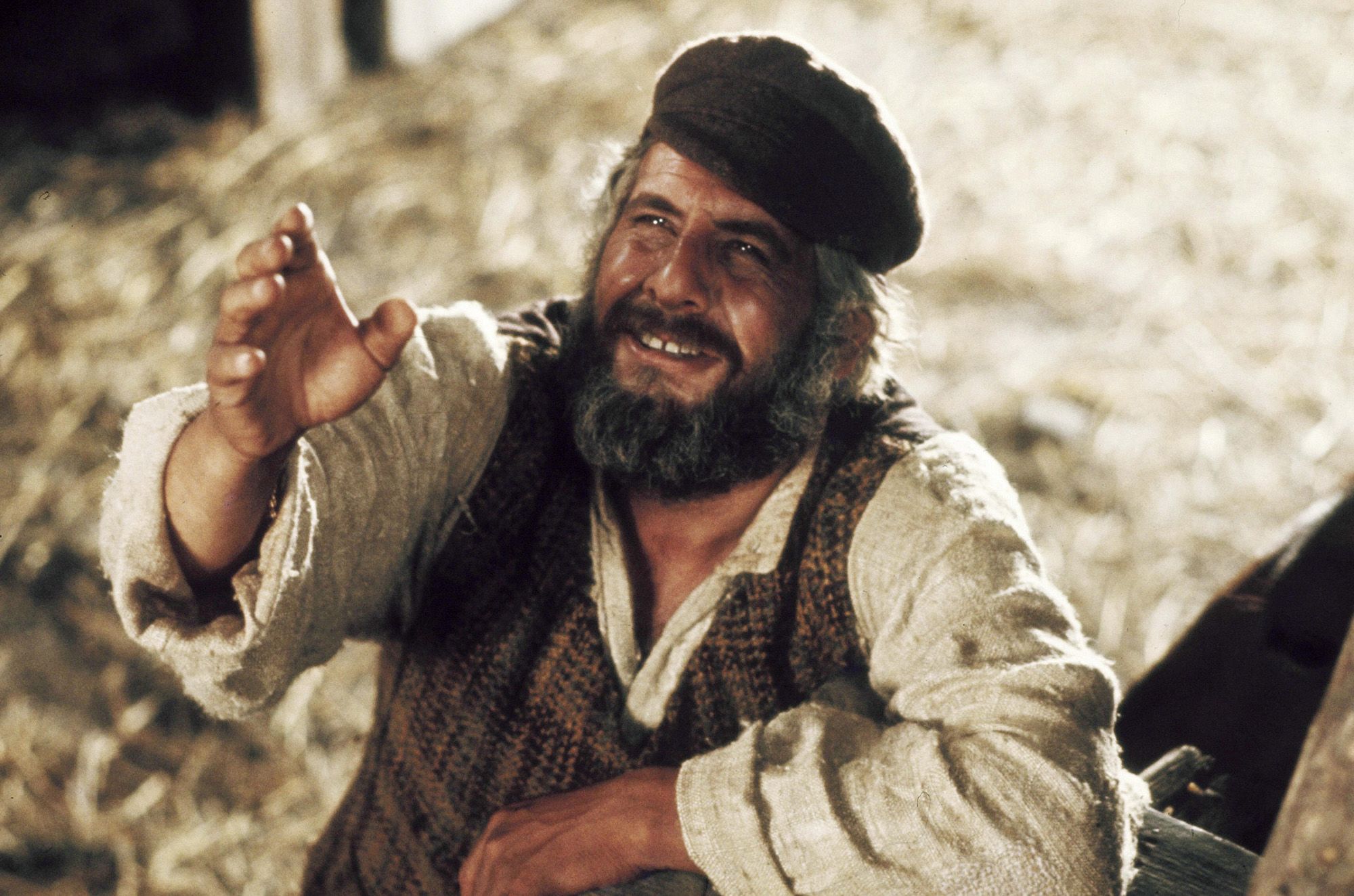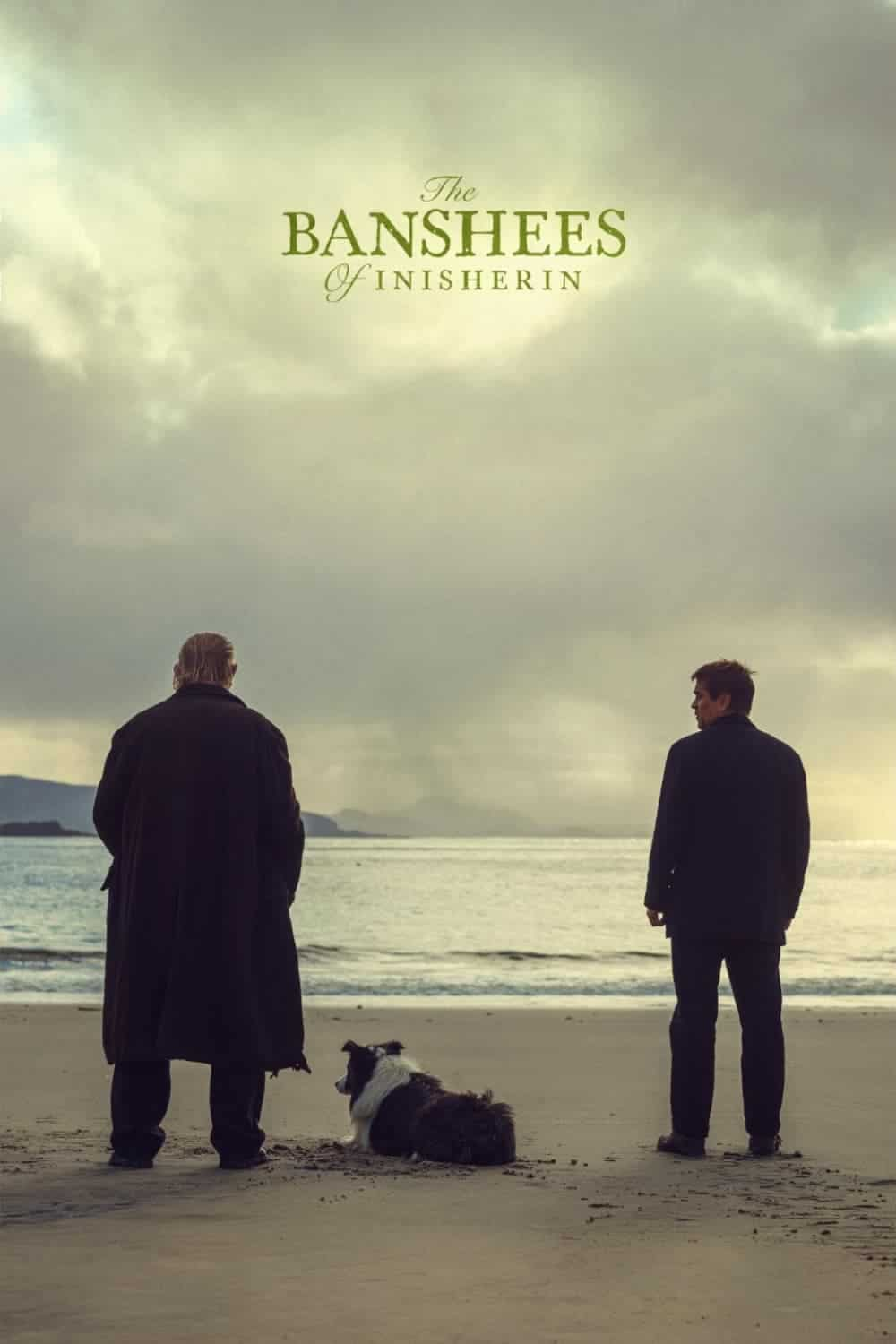Great films invite multiple interpretations, so it is no wonder my take on Martin McDonagh's masterpiece, The Banshees of Inisherin, is unique. I don't see it as an allegory for the Irish Civil War. I don't see it as an indictment of an insular and parochial way of life. Instead, I see it as an existentialist portrait of the resilience of the human spirit in the face of life's absurd fragility. In fact, the best way to understand the film may be by comparing it to another tragicomic film also set in the early 20th-century--a film that, like Banshees, is about a milkman and a fiddler in a small village trying not to buckle under the weight of cultural strife. I'm talking about Norman Jewison's beloved classic, Fiddler On The Roof.
I have been wanting to write about these two films for some time. Today is the day, in part because the Oscars are tomorrow and Banshees is my favorite for Best Picture, and also because yesterday we lost Chaim Topol, who performed as Tevye on stage over 3,000 times and who immortalised the role in the acclaimed film.
 |
Chaim Topol (1935-2023)
|
The Struggle for Balance

As a figment of Tevye's imagination, the fiddler must be understood figuratively, as a personification of the search for balance amidst the crumbling of tradition. He explains this early in the film, when he says that, without their traditions, their lives would be as shaky as a fiddler on a roof.
The fiddler comes to life several times in the movie. In one scene, they dance together after Tevye learns that his village will be subjected to a pogrom. Tevye says in horror and disbelief, "A Pogrom? Here?" And yet, he refuses to let the terrifying news throw him off balance. The fiddler smiles at him from atop his roof, and then reprises "If I Were A Rich Man," charming Tevye into a jig. The choice of song may be significant: Perhaps the fantasy of having great fortune is what helps him keep his balance.


When I was younger, I thought the fiddler represented tradition. When Chava runs away from the fiddler and into the arms of a gentile, I thought it was symbolic of her running away from her people. Now I think a deeper interpretation is preferable: If the fiddler is Tevye's search for balance, then Chava's break with the fiddler symbolises Tevye's own inability to find balance with her decision.

The Fiddler and the Milkman
Like Tevye, Pádraic (Colin Farrel) is a poor milkman struggling to find balance after his tradition suddenly collapses. And as with Tevye, he only finds balance by coming to terms with his fiddler. Colm (Brendan Gleeson) is quite the opposite of Tevye's fiddler, however. He is as grim and solemn as Tevye's fiddler is jovial. Colm does not smile, let alone frolic, but his behavior is equally absurd: He chooses to destroy his own hands, threatening any hope of balance, in order to force Pádraic to accept the loss of tradition.
Throughout the film, Pádraic tries to fight against the lost tradition--he tries to get Colm (Brendan Gleeson) to return to life as it was before. By the end of the film, he accepts that this is no longer possible, but he has bent. He has found a new balance, a new way forward in life with his stubborn fiddler.
It's not simply that Pádraic is like Tevye and Colm is like his fiddler, however. Colm also shares qualities with Tevye. Colm's break with tradition stems from his need for a legacy after his death. We can assume that he feels the imminence of death not merely because he is getting older, but because of the terrible loss of life in the ongoing Irish Civil War. His composition, "The Banshees of Inisherin," is meant to survive death. He wants greatness, not the dull, common life he associates with Pádraic. Tevye also dreams of greatness, of transcending the impoverished confines of his simple life. When he sings, "If I Were a Rich Man," he says the best of all would be having time for endless Talmudic debates with learned rabbis. Like Colm, he is not satisfied with his life, and dreams of touching something closer to eternity.
Faced With Death
In Banshees, Colm and Pádraic's conflict reflects the existential crisis of the Irish witnesses to the Irish Civil War--the people whose cultural foundations, their national identity and way of life, have turned against them. They see the war from a distance. They feel its effects. They know that their world has changed. It is violent and horrifying, and they can neither stop nor make sense of it. Their struggle is not an allegory for the war--it is in response to the war, much the way Tevye's struggles are in response to the conflicts in Russia and the changing world around him.
 |
| Pádraic witnesses the Irish Civil War. |
Banshees has a darker tone than Fiddler, not merely because the stubborn joviality of Tevye’s fiddler is replaced with Colm’s solemn yet horrifying self-mutilation, but because of the stronger existentialist theme of impending death. Surprisingly, death is entirely absent from Fiddler. The pogrom that eventually takes place is more horrifying for when it happens--in the middle of Motel and Tzeitel's wedding celebration--than for the damage wrought. There is no blood. Nobody is hurt.
 |
| Tevye looks for answers as his family cleans up after the pogrom. |
In real life, pogroms involved devastating acts of murder and rape, not simply the destruction of property. The darkness that loomed over the lives of Jews like Tevye and his family was at least as profound and unrelenting as any experienced during the Irish Civil War, and probably worse. Yet, as with the stage version, the film does not attempt to grapple with the true ugliness of history.
Despite their differences, the two films tell remarkably similar stories. In the end, Tevye and Pádraic find balance by bending more than they thought possible. Pádraic becomes hostile and aggressive, expressing darker emotions which previously only came out when he was drunk, and earning him respect, though not comfort, from his fiddler. Tevye's surprising turn is when he makes a kind gesture to Chava that brings his entire family happiness, but which would have been unthinkable for him earlier in the film. After that, when he and all the other Jews are forced out of their homes, it is no surprise he takes his grinning fiddler with him.














Comments